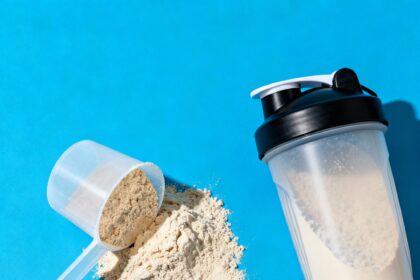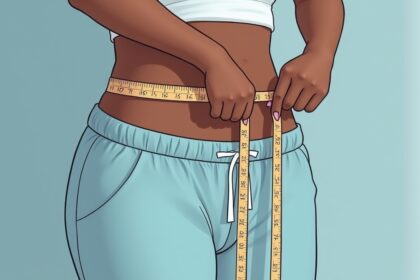By Jaida Hall
What is Overtraining?
Many Americans practice some sort of physical activity during the day, from a casual walk to more intense training. Defining and avoiding overtraining could be the difference in peoples’ active lives to ensure a safe and measured progression to achieving peak physical fitness. Put simply, overtraining occurs when an athlete over-extends their physical capabilities.
They ignore the signs of muscle fatigue causing poor performance and the potential for irreversible damage. This usually occurs when there is an imbalance between training and recovery. Without corrective measures, overtraining can cause a decline in athletic performance.
Muscle Fatigue and Overtraining Syndrome
One of the first signs of overtraining is excessive muscle fatigue. A 1994 paper defines muscle fatigue as the inability to maintain the required or expected force or power output. Although muscle fatigue is normal and, to some degree, required for muscle endurance and growth, the fatigue that is tied to overtraining can linger in the muscles and does more harm over time.
Overtraining fatigue occurs when the body is put through strenuous exercises without being given a chance to adequately recover. Over time, this can lead to chronic fatigue and overtraining syndrome. Symptoms of overtraining syndrome include consistent tiredness, coughs and colds, and a disrupted sleeping pattern, according to a 2017 report. With this happening, there is no doubt an athlete will see a decline in performance as their muscles are in distress.

Injuries Caused by Overtraining
As a result of such a strenuous condition, an overtrained and fatigued body is much more susceptible to injury and muscle tears. More importantly, there are a mix of additional factors stemming from overtraining including fatigue, lack of nutrition, and lack of rest. Each of these conditions can be tied to overtraining.
Improper training, including overreaching and muscle fatigue, can be major catalysts for injuries. According to a 2019 report, high impact sports like basketball and soccer report more athletes with injuries due to their repetitive nature. However, any sport or activity can pose a major risk to an overstrained athlete.
A common overuse injury is called patellar tendonitis, more commonly known as Jumper’s Knee. Jumper’s Knee is caused by the repeated pulling of the overused tendon causing acute inflammation and swelling in the area. A 2019 report from Johns Hopkins noted that since most athletes jump to perform in their respective sports, knees are a common target area for pain.
Mental and Physical Health Effects
Overtraining can also affect mental health in significant ways. An injury can take many weeks, months and in some cases even years to recover. Even in the event of a full recovery, an athlete may feel mentally blocked or overly cautious, knowing that even a small mistake could reignite that injury.
Multiple studies have shown that overtraining can have detrimental effects on both mental and physical health. A 2021 study revealed that overtraining-induced stress may increase anxiety levels and decrease food intake. It also showed that the longer the period of overtraining occurs, the faster positive moods deteriorate and negative moods such as depression, anger, and confusion settle in, according to a 1971 text.
Soreness and Recovery Misconceptions
It is common for most people to attribute soreness to an effective workout. This is a misconception because of the limited science and research behind the idea. Muscle soreness is the first sign that the body needs adequate rest. Continuing to train during this “sore” state leaves the muscles, ligaments, tendons, and bones vulnerable to injuries and tears.
Muscle soreness is caused by microtears in the muscle fibers that repair and rebuild stronger, promoting muscle growth. Training a muscle that is already sore not only halts the repair process, but also halts growth while increasing the chance of injury.
Athletes should instead focus on progressive overload, not soreness, as the key to growth and safe performance.

Training Duration and Its Risks
Many beginner athletes believe the longer the training sessions, the faster results will come. This belief can easily lead to overtraining since research suggests the longer the intensity of activity, the more recovery time the body needs.
As fatigue builds, stress levels rise and training quality drops—technique falters, movement patterns deteriorate, and injuries become more likely. Extended training is not sustainable, nor is it ideal for balance with personal life, especially for younger athletes who must prioritize education and development.
Rest and Recovery: The Key to Prevention
Most likely the best way to prevent overtraining is to allow adequate rest. All athletes, professional or amateur, can speak to the importance of rest for performance. Proper rest after strenuous training allows muscles to repair tissues damaged by exercise, and helps the nervous system recharge.
Without rest, performance and long-term health are at risk. With proper rest, athletes improve longevity and reduce the chance of chronic injury.
Structured Training and Nutrition
Purposeful and structured training ensures that athletes balance stress with recovery. All athletes should set goals and have a clear plan both in and outside of the gym to progressively overload without overtraining.
Diet is also a key component. Carbohydrates are essential for muscle recovery and energy, while adequate hydration ensures muscle cells can rebuild. Without these, recovery slows and the risk of muscle breakdown rises.
Conclusion
It is very important for athletes to recognize symptoms of overtraining and how to prevent it. Overtraining occurs when an athlete over-extends their physical capabilities, ignoring the signs of muscle fatigue that may cause poor performance and potential long-term damage. Prevention comes from balance—structured training, proper nutrition, and adequate recovery.







































